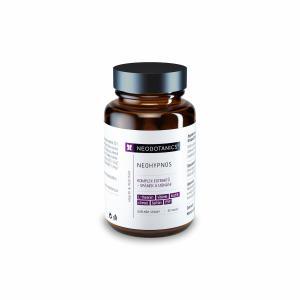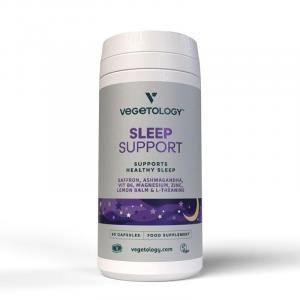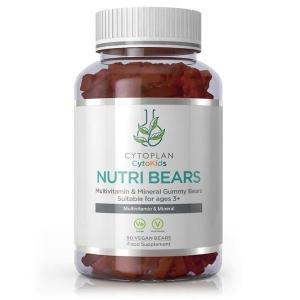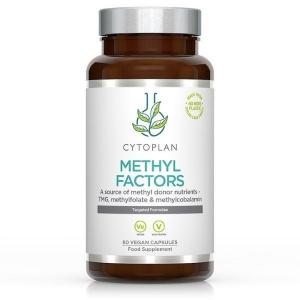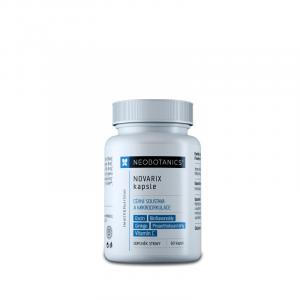
How Brain Booster Affects Our Memory and Concentration

How to Support the Brain Naturally
The human brain is a fascinating organ that works continuously without rest. Whether we are thinking, driving a car, reading a book, or just relaxing, the brain processes a vast amount of information and keeps our inner world running. Today, as we face increasing cognitive demands, there is a growing interest in so-called brain boosters – natural ways to improve memory, concentration, alertness, and overall mental health. What exactly is a "brain booster," and how can it be used in everyday life without relying on synthetic stimulants?
What Does Brain Booster Mean and Why Are We Talking About It?
The term "brain booster" has become highly sought after in recent years – and it's no wonder. People are searching for natural means to enhance brain performance, reduce fatigue, or better focus during work and study. The translation of this term into Czech could be something like mind enhancer, or more precisely, brain stimulant – something that supports brain activity, whether short-term or long-term.
Unlike synthetic substances such as prescription medications (for example, for treating ADHD or memory disorders), natural brain boosters often rely on herbs, adaptogens, healthy nutrition, exercise, and overall lifestyle. The goal is not to "hack" the brain but to create an environment where it can function as efficiently as possible.
Nature as the Brain's Ally
The foundation of an effective brain booster often includes adaptogenic herbs – plants that help the body better cope with stress while supporting cognitive functions. Among the most well-known are ginseng, bacopa monnieri (known as Brahmi), rhodiola rosea, or gotu kola. These herbs have a long tradition in Ayurvedic and traditional Chinese medicine and are increasingly being revisited by the Western world.
Special attention also deserves mushrooms with nootropic effects, such as lion's mane or reishi. These mushrooms contain substances that can support the growth of nerve cells, protect neuronal connections, and contribute to better brain functioning. Some studies have noted a positive impact on memory and cognitive speed in lion's mane.
Many people have also embraced matcha – powdered green tea that, in addition to caffeine, contains L-theanine. This combination provides gentle stimulation without nervousness, which is appreciated by those who want to be focused and calm at the same time.
The Brain Needs Fuel – and It's Not Just Sugar
Diet has a crucial impact on brain function. It's not just about eating "healthy." It's essential to pay attention to specific nutrients the brain needs. For example, omega-3 fatty acids, found mainly in fatty fish, flaxseeds, and chia seeds, are essential for the development and regeneration of brain cells. A lack of omega-3 has been linked to mood disorders, fatigue, and impaired memory.
Other key substances include B vitamins, particularly B6, B9 (folic acid), and B12, which are involved in the production of neurotransmitters and the overall balance of the nervous system. Magnesium, which supports relaxation and reduces stress, and vitamin D, increasingly discussed in connection with cognitive health, should not be missing.
In practice, this means simple things – a colorful diet rich in vegetables, whole grains, quality fats, seeds, and nuts. Conversely, we should avoid excessive sugar, processed foods, and alcohol, which hinder rather than support brain function.
Sleep, Exercise, and Fresh Air
In the pursuit of a miraculous pill to increase IQ, we often forget the most essential – the right life rhythm. Quality sleep is one of the most reliable brain boosters that doesn't cost a penny. During deep sleep phases, neurons regenerate, the brain "cleans" toxic waste products, and newly acquired information is consolidated.
Try our natural products
Similarly, exercise has been proven to improve brain circulation and increase levels of neurotrophic factors that support the growth of nerve cells. Even a simple brisk walk, ideally in the fresh air, can serve as a reliable means of "refreshing the mind."
An example is the story of Jana, who works as an accountant in a corporation and suffered long-term from concentration lapses and fatigue. Instead of reaching for medication, she decided to change her daily routine. She started each morning with a 20-minute walk, incorporated chia seeds, green tea, and more vegetables into her diet, and went to bed an hour earlier instead of scrolling on her phone. After two weeks, her ability to concentrate clearly improved – and without any dietary supplements.
When Dietary Supplements Make Sense
Although the basic building blocks of brain performance should be lifestyle, in today's hectic world, selected dietary supplements can sometimes help us. Especially if you're not sure you're getting everything you need from a regular diet. Natural brain boosters in capsule or powder form can be a convenient supplement – but they should not replace exercise, sleep, and a varied diet.
The most commonly used natural supplements include:
- L-theanine – for better concentration without nervousness, often combined with caffeine
- Omega-3 DHA and EPA – support brain function and can alleviate symptoms of depression
- Ginkgo biloba – improves brain circulation, popular especially among older populations
- B-complex – especially during periods of stress or mental strain
- Adaptogens – ginseng, rhodiola, or ashwagandha to increase resilience to stress
It's important to choose products with transparent composition and verified origins. In a shop focused on sustainability and a healthy lifestyle, like Ferwer, you will find a selection of supplements and herbs that do not harm nature or your body.
Try our natural products
The Brain as a Whole – Not Just Performance, But Also Mental Balance
Supporting the brain should not only aim for higher performance. In today's world, overwhelmed with stimuli, it's crucial to focus on mental balance, resilience, and inner peace. A brain booster is not just about writing a thesis faster or getting through a meeting without losing focus, but also about maintaining mental well-being when chaos is around.
"The brain needs not only information but also silence." This statement by German neuroscientist Gerald Hüther reminds us that sometimes the best brain booster is indeed a pause. A walk without a phone, mindful breathing, or just quietly sitting with a cup of tea can be the most effective thing we do for our mind.
So next time you think about how to support the brain, start with the simplest – mindful slowing down, a kind approach to your body, and trust in nature. Discovering your own brain booster can thus be not only a journey to higher performance but also a journey to oneself.
